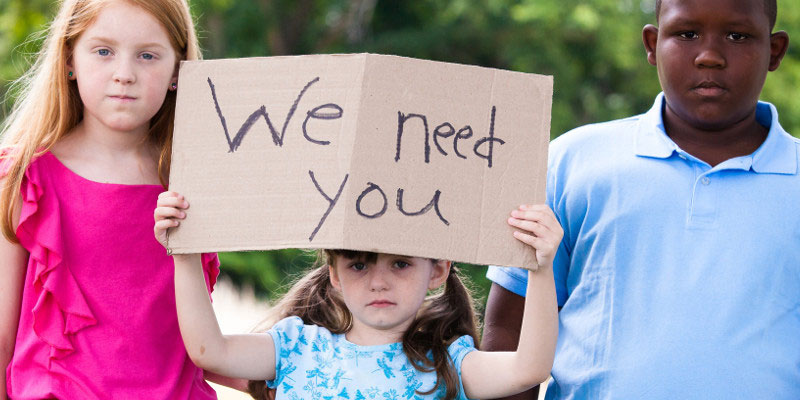
It’s what keeps us together.
It’s what the world needs more of.
It’s what makes the world go round.
And it is what children in foster care need the most.
Love.
More specifically, your love.
Will you provide these children in need this? Will you love them?
As a foster parent of over 50 children the past 15 years, I have found one thing is true. Like all children, a child in foster care has one true wish and one real desire, more than possibly anything else, and that is to be loved. As foster parents, we can protect the child from harm, provide a safe and secure home, offer nutritious meals, and open up a doorway of opportunities for foster children, granting them new and exciting experiences that they may never have dreamed of. Yet, with all of this, with all of the wonderful opportunities and safe environments, foster children really crave love the most. They want to be loved, and they need to be loved. After all, every child deserves to be loved.
Sadly, not every child will receive it. Not every child will feel loved. Yet, every child deserves it.
Not only do children deserve love, they need it in order to grow in a healthy fashion. The greatest gift you and I have been given is love. While there are many forms of love, the strongest one, and most important for a foster child, is that of unconditional love. Sadly, many children in foster care either do not receive this love at all, or receive it too late, after too much emotional damage has been done.
No mother to love them. No father to love them. No grandparent, aunt, uncle, or other relative. No family member to give them what they need the most. Someone to love them unconditionally.
Unconditional love is simply being loved without restrictions or stipulations. For a foster child who may have been abused, beaten, or neglected, this type of unconditional love is most important, yet probably unknown. Your love as a foster parent is quite essential to the child’s health, well being, and future. Without this type of love, a love that does not judge and is forgiving, a foster child will not form necessary and healthy attachment with others, resulting in a number of attachment disorders. Foster children who suffer from these disorders will have great difficulty connecting with others, as well as managing their own emotions, not only during their childhood and time in foster care, but many times throughout the remainder of their lives. Emotional difficulties such as a of lack of self worth, trust, and the need to be in control often result in the lack of unconditional and healthy parental love. As anyone who has worked with foster children will tell you, most foster children face an enormous amount of emotional issues, many times stemming from the lack of healthy love; the love of a parent figure.
So let me ask you once again.
Will you provide children in foster care this? Will you love them?
Quite simply, there are not enough foster parents, not enough foster homes, and not enough people who will help a child in need. It’s time we change that. It’s time we work together to bring hope, to bring healing, and to bring love to children in need. Consider joining Foster10K, a mission to recruit 10,000 new foster parents by the year 2020. Sign the pledge that you will care for children in need. It will be the greatest gift you can give a child, and the greatest gift you can give yourself. Find out more about Foster10K and sign the pledge to help HERE.
Let’s make 2018 the year that children in foster care find the love they need, they love they deserve.



























